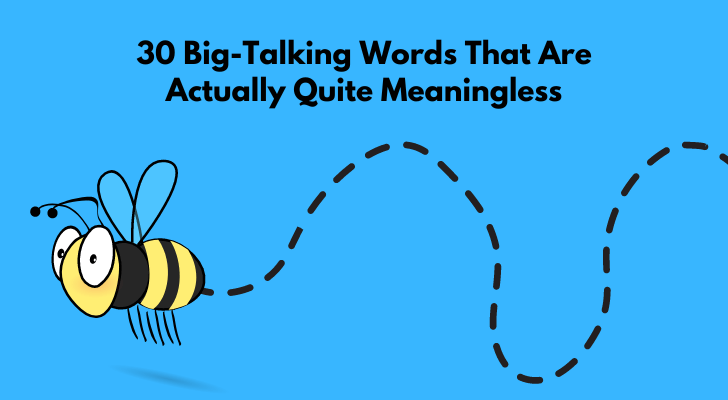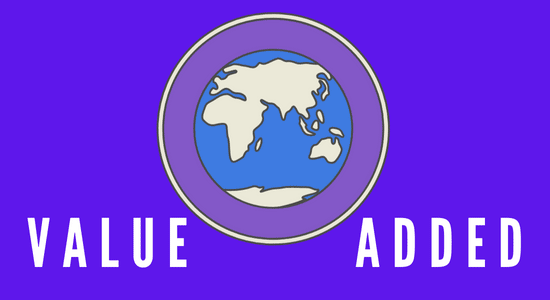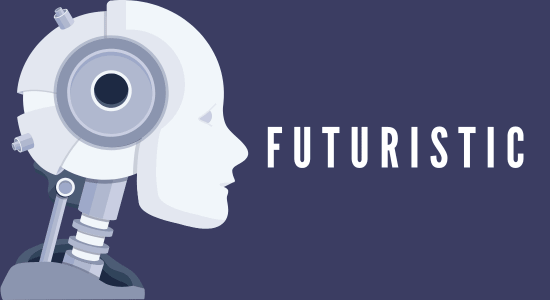People who overuse big words usually have no imaginative brain, so they shouldn't be trusted. Especially in business, or exclusively in business, rather, those who talk like non-stop chatterbox machines overuse those words in conferences or webinars.
They use those big expressions to make their businesses sound credible, or they use them for convenience. Some of those words help you avoid providing specific information, don’t they? “It works effectively and efficiently” - means absolutely nothing apart from “good.”
So here are 30 of those silly buzzwords that you want to avoid using, if you don’t want to sound like a scatterbrain psycho.

1. Synergy
This word is often used to describe the cooperation or interaction of different elements to produce a greater combined effect. But it's often vague and lacks specific details or measurable outcomes.
"Our team's synergy will lead to exponential growth." It sounds so hollow because it simply means "Let's help each other." Without specifying how the synergy will be achieved or what the actual outcomes will be, this is one of the stupidest buzzwords to use.
2. Paradigm
"We need to shift our paradigm to succeed." It refers to a framework or model used to understand or explain something. It does sound sophisticated, but has no meaning whatsoever.
People who use this word almost never provide concrete examples or demonstrate a "shift" in thinking themselves.
3. Disruptive
"Disruptive" means causing big changes by doing things in new and different ways. It shakes up industries and makes things work in a whole new manner. It brings fresh opportunities and transforms how things are done.
"Our company is developing a disruptive product that will revolutionize the market." Doesn't it sound so buzzy that it's actually boring?
4. Innovation
Although innovation is crucial for progress, the word itself is frequently overused and lacks specificity.
Many companies claim to be innovative without providing clear examples of novel ideas, methods, or products. "We are a company that fosters innovation." It means they’re looking for something new but they’ve no clue what. Or they’ve just recruited a couple of graduates so they’re expecting them to come up with something “innovative” - like dance on TikTok, get 10 billion views so they can sell their fax machine.
5. Value-added

This term is often used to imply that something provides additional benefits or enhances an existing product or service. But the term is subjective and lacks concrete explanations of those added values or their significance.
"Our consultancy services offer value-added solutions", which means they charge astronomical fees but they are proud of what they do.
6. Cutting-edge
Like a hundred years ago, a car was to carry people from A to B, nothing else. So when they see something functional and stylish, like an aquamarine blue car, they go, “Wow, cutting-edge!
"Our cutting-edge technology will revolutionize the industry."
7. Unprecedented
The fancy word for "never been done or seen before", is now used by everyone. Covid lockdown was unprecedented, Russian sanction was unprecedented, wasabi cheesecakes are unprecedented... Whoever uses the word when something's not truly unprecedented is a total loser.
8. Thought leadership
What a stupid phrase! Humans are not wild animals, as if there are thought leaders and non-thought leaders who dominate others through physical fights.
This term is used to signify being an authoritative figure or expert in a particular field. It’s often self-proclaimed without demonstrating actual unique insights though.
"We are a thought leader in the industry," what the heck does that mean? We are better than others. That’s all it is, isn’t it?
What Do You Advocate?
9. Game-changer
People say “game changer” when they *think* their product or whatever they have is going to be good for no apparent reason.
"Our product is a game-changer in the market." Yeah, if you can explain what exactly the transformative features are, if you looked and looked and looked, and no one else in the industry has those features. Then it may become a game changer.
But you can only say that once. Once the game has changed and everyone else is in the game, it’s no longer a game-changer. It’s just the current game!
10. Robust

The word robust originated in the 19th century when a sculpture of a woman’s breasts was stolen from a museum - “rob bust.” Not.
"Our robust security system provides comprehensive protection." Security systems are technical in general, so as long as how robust it is - the durability or resilience in the way that everyone understands, it’s bust-throbbingly comprehensive.
11. Best-in-class
This term suggests being the top performer or the best among competitors in a particular category. But what class? It's so subjective and lacks objective criteria or evidence to support the claim.
"Our product is the best-in-class solution for your needs." Without providing comparative data or explaining the specific attributes that make it the best, it’s not best-in-class.
12. Next-generation
"Our next-generation software is designed to revolutionize user experience." When you think about it, it’s easy for anyone to claim something is “next generation.” Your new software is usable on Mars. And you’ll be dead by the time people start to live on Mars.
13. Optimize
It suggests improving or maximizing the efficiency, performance, or effectiveness of something. It means to make it less clumsy. It's a very convenient word because everyone uses it without explaining how. They don't know how to optimize their conversation skills.
14. Proactive
Taking initiative. Being forward-thinking. Addressing issues all the time. Always challenging. Annoying.
"Our team is proactive in solving problems." No business would claim not to be proactive, really.
15. Dynamic
Dynamic is another convenient word - flexible, versatile, positive, wild… But without providing details on the adaptable tactics, it doesn’t really mean much.
"Our dynamic marketing strategy ensures success." If you have more than one marketing method, then that’s dynamic, isn’t it?
16. Holistic
The word means considering something as a whole and addressing all relevant factors… I don’t understand. Do you?
"Our holistic approach to wellness includes mind, body, and spirit." It sounds about right.
17. Scalable
"Our software is highly scalable for growing businesses." Isn’t any software?
Without explaining the specific scalable features or addressing potential constraints, it sounds like a con.
18. Actionable
"Our report provides actionable insights for business growth."
That’s a real stupid statement. Because actionable means walk the walk, and this statement is only talking the talk. Typical annoying salespeople often use the word “actionable”, not realizing that they are the ones who are not taking real actions.
19. Revolutionary
"Our product is a revolutionary breakthrough."
It merely means, “Look, this is amazing!” It rarely suggests a radical departure from existing norms.
20. Transformative
People overuse the word that doesn’t it sound annoying when we don’t see a real “transformation”? "Our program offers transformative results."
21. Exponential growth
Let’s all start using this phrase. "Our business model guarantees exponential growth."
You sold 2 packets of batteries on eBay last month, but you sold 8 this month. That’s a whopping 400% increase. What a rapid, exponential growth that is!
22. Futuristic

Like “cutting edge”, the word futuristic can sound dull. When you say, "Our product incorporates futuristic design and functionality", it sounds like they’ve got something fabulous.
But you know what? For decades and decades, any item that looks metallic or robotic has been called “futuristic.” And that’s not necessarily a compliment. Ummmm, this stainless dog ornament is so futuristic.
23. Visionary
The term refers to someone who possesses great foresight or innovative ideas. "Our CEO is a visionary leader" - but what great leader doesn’t have ideas that are not visionary?
24. State-of-the-art
It’s supposed to mean something is so at the forefront of technological advancement or modernity, it’s art. Unless it looks visually artistic to anyone, the phrase is often used as a joke.
"Our state-of-the-art pizza utilizes cutting-edge technology. Fresh out of the oven, it’s already cut into 48 slices, you can eat it with chopsticks."
25. Agile
It suggests being nimble, adaptable, or responsive to change.
"Our agile project management methodology ensures timely delivery." Basically it means “We try as fast as we can.” Without detailing specific agile approaches, it’s just fluff.
26. Empowerment
Power. Authority. Taking control. Making my own decisions. I’m so strong.
"Our program focuses on empowering individuals." It sounds pretty spiritual but who can tell the specific empowerment strategies? Or as a user, if you’re made to *feel empowered*, will that be enough?
27. Seamless integration
It suggests the smooth and efficient combination of different components or systems.
First of all, it's not the 1990s. All techie stuff should be integrated seamlessly, otherwise, you'll only get bad feedback on Trustpilot. And second of all, don't fluff. Explain exactly why your software or whatever you sell has no compatibility issues.
28. Thought-provoking
"Our thought-provoking articles challenge conventional wisdom." Without specifying the unique perspectives or controversial topics that make them thought-provoking, this means very little.
Thought-provoking simply means that things are not straightforward. Use everyday language and explain exactly why.
29. It's Important To...
Whoever overuses the phrase "it's important to" doesn't know how to convince people.
"It's important to drink eight glasses of water a day." Yeah, hydration is indeed for our well-being, but the statement alone doesn't provide specific context or scientific evidence to support the claim.
If you think it's important, explain the true meaning of the rest of the sentence. Why 8 glasses? What happens if you drink 7 glasses a day? Are you going to die? Get fat? Or what?
30. Effectively (and Efficiently)
"Efficiently and effectively" is a lazy expression used by morons who have no imagination.
"Our production process is efficiently streamlined." This statement implies that the production process is optimized to minimize waste and maximize productivity. But without specifying the specific improvements or techniques that make it efficient, it means nothing.
Even if you do specify, you never need to use either of the words "effective" or "efficient" to fluff.
How I "Finally" Make Over $7,000 Monthly Income
"The most valuable thing I've ever done!"
